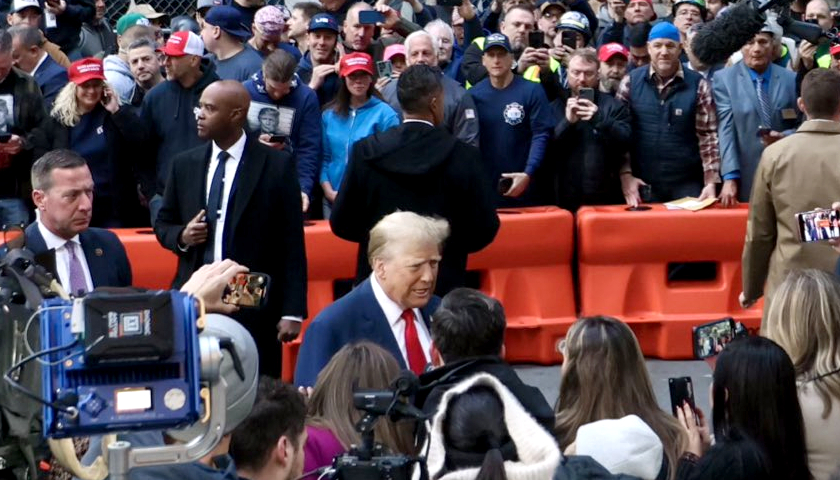by Bruce Walker
Perry Johnson’s name will not appear on the Michigan gubernatorial primary ballot on Aug. 2.
The state Court of Appeals on Wednesday denied the Republican quality guru’s request for a writ of mandamus, upholding the Board of State Canvassers conclusion, “Mr. Johnson did not meet the threshold for certification to the ballot based on the staff’s initial review,” according to the court’s published decision.
At question was whether Johnson had amassed the required 15,000 legitimate signatures to appear on the primary ballot.
“In total, staff’s review of Mr. Johnson’s petition sheets identified 9,393 invalid signatures and 13,800 facially valid signatures, which dropped him below the 15,000 threshold and rendered him ineligible for the ballot,” the Court concluded.
Four other Republican candidates for governor had signature issues, each with more than 11,000 invalid:
- Former Detroit Police Chief James Craig: 10,192 facially valid signatures, 11,113 invalid signatures.
- Michael Brown: 7,091 facially valid signatures, 13,809 invalid signatures.
- Donna Brandenburg: 6,634 facially valid signatures, 11,144 invalid signatures.
- Michael Markey: 4,430 facially valid signatures, 17,374 invalid signatures.
The canvassers board argued, and the court concurred, the petition sheets submitted by Johnson revealed three patterns:
- An unusually large number of petition sheets where every signature line was completed, or where every line was completed but one or two lines were crossed out.
- Many sheets showing signs of apparent attempts at “intentional” signature invalidity, including sheets where an entry listed a county in the “city or township” field, or a birth date rather than the date of signing in the “date” field.
- An unusually large number of petition sheets that showed no evidence of normal wear that accompanies circulation, including folding, scuffing, minor water damage from rain, or any of the other characteristics that come from sheets being kept on clipboards and handled by multiple people in public or outdoor conditions.
- Sheets that appeared to be “round-tabled,” a practice in which a group of individuals pass around sheets with each individual signing one line on each sheet with handwriting different from the circulator’s handwriting, in an attempt to make handwriting and signatures appear authentic and received from actual voters.
- Sheets on which blank and completed lines were randomly interspersed, indicating that a sheet had been submitted “mid-round-table.” In such cases, a sheet was submitted even though the round-tabling process had not been completed.
- Sheets where all 10 lines had signatures and partial addresses or dates, but only a random subset were fully completed.
Judges Kirsten Frank Kelly, Michael J. Kelly and Noah P. Hood rendered the Appellate Court’s decision.
The document pointed out many instances of identical signatures, including Ryan Snowden, 1,077 signatures; Stephen Tinnin, 1,034 signatures; and William Williams, 989 signatures.
– – –
Bruce Walker is a regional editor at The Center Square. He previously worked as editor at the Mackinac Center for Public Policy’s MichiganScience magazine and The Heartland Institute’s InfoTech & Telecom News.
Photo “Perry Johnson” by Perry Johnson.








